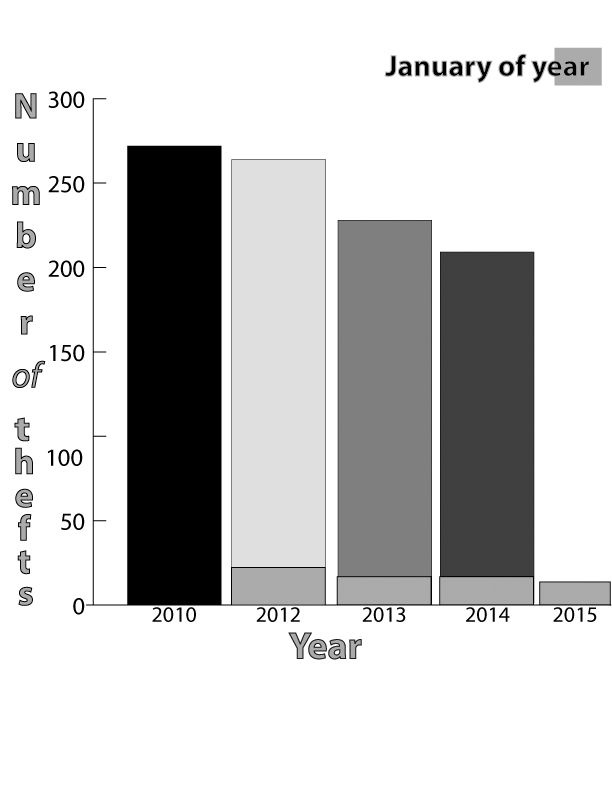Thefts are down but still a problem
February 17, 2015
Decreasing reports of theft on campus may be a result of educating students on how to protect their belongings.
Last year, Iowa State had the lowest numbers of thefts since 2010, according to ISU Police crime statistics. Last month, there were only 10 thefts on campus, compared to an average of 15 thefts in January during the past three years.
Peter Englin, director for the Department of Residence, said most crime around campus occurs because people take advantage of opportunities to steal. Most of the items stolen are bikes, backpacks, books and other items students leave unattended that can be easily picked up, taken, and either used or easily sold, Englin said.
“We’re fortunate that we live in a community where not much theft occurs,” Englin said. “Most of the theft that occurs is usually opportunistic stealing. If things are left unattended, someone can just walk by, pick it up and take it.”
The ISU Police Department has been reaching out to the student body to create awareness about the possibility of theft. Officers speak at freshman orientation and visit residence halls to talk to students and give advice to avoid being a target of theft.
ISU police officers urge students to report theft because the department has the full power to detain, investigate and arrest, according to the Iowa State Department of Public Safety. If students don’t report theft, there’s little chance of recovery, Englin said.
Anthony Greiter, ISU police officer, said students should use common sense, such as locking their door and not leaving items out and unattended. Thefts increase during Dead Week and around school breaks because students are preoccupied and don’t think about safety.
Carrie Jacobs, captain of criminal investigations for ISU Police, said theft from vehicles also rises before and after school breaks because students are busy moving their belongings from their residences to their cars, often leaving cars full of valuable items unlocked.
Jacobs said she tells students to think of the simple procedures they can take to prevent theft.
“You want to be aware of your surroundings. If something seems suspicious, report it.” Jacobs says. “You never know what you could be preventing.”
Suspicious behavior could be anything from an unfamiliar person in a residence hall to someone examining bike racks to see if any bikes were left unlocked.
“Dorms are a community and students know who belongs where,” Englin said. “But a lot of our students will leave and not lock their door. Just simply reminding students to lock their doors can go a long way in preventing opportunistic theft.”
As promising as the numbers look, theft will always be an issue on a college campus, Greiter said. However, if students continue to be aware of the risk of theft, rates of theft could continue to decline in the future.

















